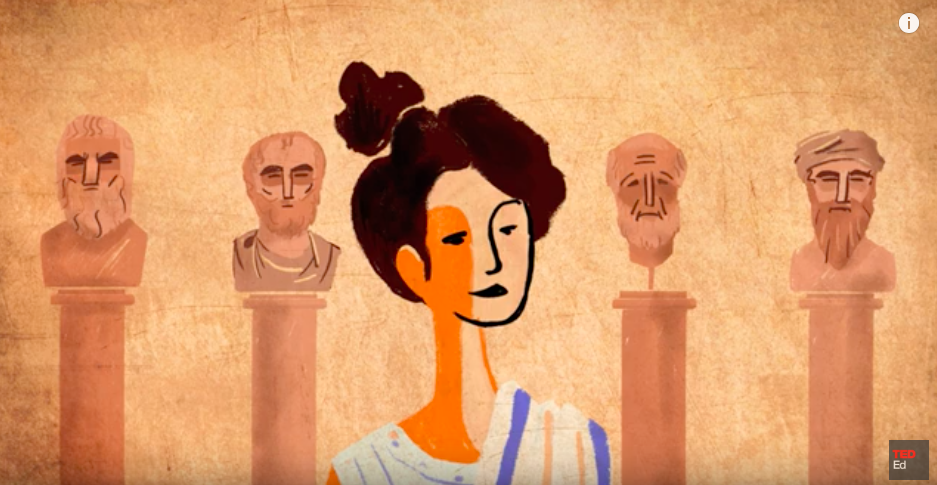
In 2019, a film came out called Agora, a biopic of philosopher and mathematician Hypatia of Alexandria, daughter of mathematician Theon, the last recorded director of the Library of Alexandria. This movie was not well-reviewed or widely seen, which is neither here nor there, but it was heavily criticized for historical inaccuracies. This seemed a little silly.
Agora isn't an accurate rendering of the little we know of Hypatia, although neither is Spartacus, a much more entertaining film, which is an accurate depiction of the second century B.C.E. gladiator and rebel.
Still, we should know who Hypatia was, and we need to understand what happened to her, something several of the film’s religiously-motivated critics refused to admit, saying the depiction of hostile, anti-intellectual Christians in the video was nothing more than prejudicial animus on the part of director Alejandro Amenabar.
The TED-Ed video above calls that mob a “militia” that saw Hypatia’s scientific pursuits as “witchcraft.” The charge is, of course, specifically gendered.
As is the case with several ancient figures, none of her writings survive, though both her contemporary critics and sympathetic students record similar impressions of her intellectual curiosity and scientific knowledge. The video lesson tells us Hypatia was born around 355 A.C.E., which means that she would have been about 60 years old at the time of her death.
Hypatia eventually succeeded Theon as head of the Platonic school, and she served as a trusted advisor to the city’s leaders, including Orestes, its governor, a “moderate Christian” himself. Her achievements were many, though her teaching, drawing on Plato, Aristotle, Pythagoras, and Plotinus was her greatest legacy, the TED-Ed lesson asserts (scripted by Soraya Field Fiorio).
For a complete treatment of Hypatia's life and intellectual contributions, read Maria Dzielska's book, Hypatia of Alexandria.
















COMMENTS